On October 16th and 17th, the tenth International Convention of the International Association for Literary Ethical Criticism was held at University of Science and Technology Beijing (USTB), and co-hosted by the Center for Interdisciplinary Studies of World Literature at Zhejiang University, the International Association for Literary Ethical Criticism, and the editorial office of Foreign Literature Studies. The Convention intended to discuss major ethical issues to be faced in the age of artificial intelligence, and with new concepts and approaches to build theories for literary ethical criticism in the new age. Those present at this online and offline convention were about 500 top scholars from over 100 universities around the world, and they exchanged their academic thoughts in a diversified and profound way. The convention attracted an online audience of over 10,000.

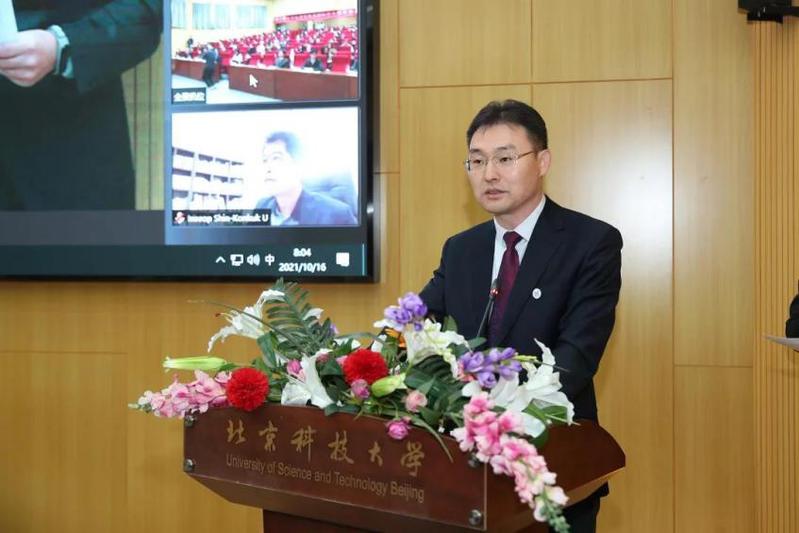
Moderated by Mr. Fan Yiting, Vice Dean of the School of Foreign Studies at USTB, the inauguration heard the opening speech delivered by Mr. Yu Chengwen, Vice Secretary of the CPC Committee of the University, who extended hearty congratulations to the holding of the Convention, and expressed his expectation that it, with communication and collaboration among world experts, would promote the discipline of foreign studies in China.
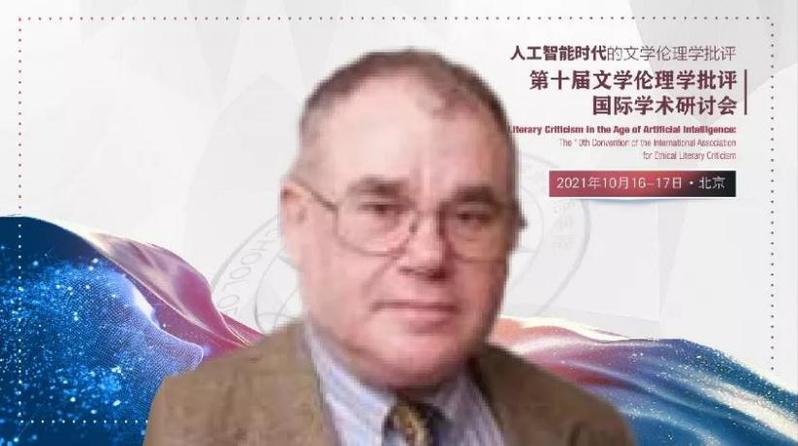
Prof. Wang Songlin from Ningbo University, Deputy Secretary General of the International Association for Literary Ethical Criticism, read the message from Prof. Claude Rosen from Yale University, President of the International Association for Literary Ethical Criticism. Prof. Claude Rosen expressed a warm welcome to the scholars on behalf of the Association, and suggested that the main object of literary studies should be the text, and the ultimate goal of the studies should be about obtaining knowledge and understanding the text. As a theoretical tool, literary ethics criticism will help researchers interpret and analyze the text, and thus achieve the goal of literary studies. He hoped that the attendees would make use of the seminar as a platform to present and discuss what had been achieved.
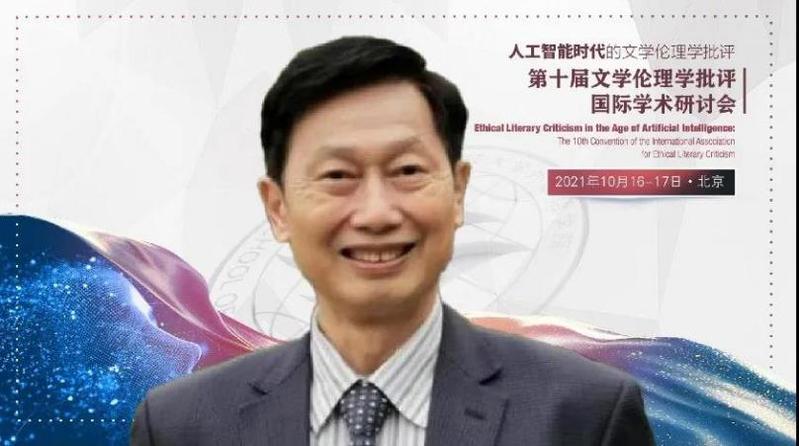
Prof. Nie Zhenzhao from Zhejiang University, who was Vice President of the Association, a foreign academician of the European Academy of Sciences, delivered his speech afterwards. With the title of “Value Choice and Theory Construction of Literary Ethics Criticism”, Prof. Nie elaborated on the theoretical discourse, methodological approach and value significance of literary ethics criticism, and affirmed the contributions made by Chinese scholars to this theoretical system. He pointed out that Chinese scholars have constructed and developed a system of literary ethics criticism with the terms of ethical choice, ethical identity, ethical environment, free will, and rational will as its core, which is of positive significance in enhancing the international impact of Chinese literary theory.
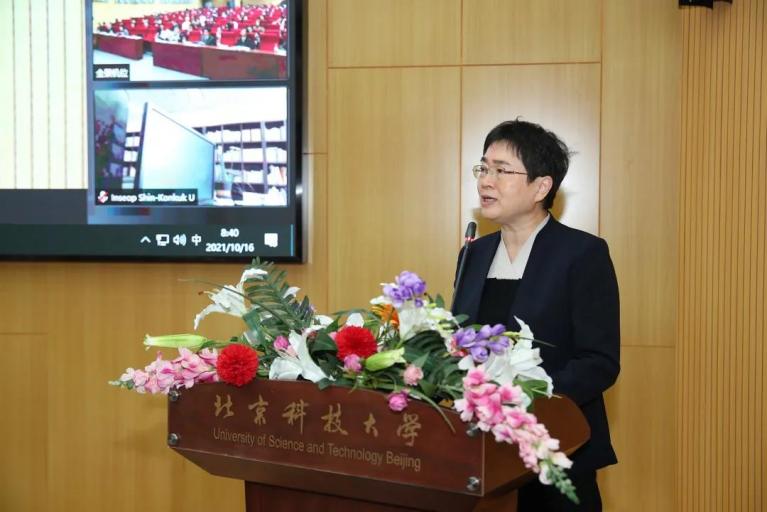
On behalf of the organizers, Prof. Chen Hongwei, Dean of the School of Foreign Studies at USTB, extended her sincere wishes to the Convention and expressed heartfelt gratitude to the co-hosts. After briefly reviewing the classical works on artificial intelligence in the 20th century, she emphasized that these literary works have written about human anxiety concerning the ethical transgression of technology, and presented people’s concern about the current ethical view of technology. She hoped that through this Convention, Chinese and foreign scholars could explore more about literary ethics criticism in the context of the era of artificial intelligence and get out of the ethical dilemma and myth in the new era.
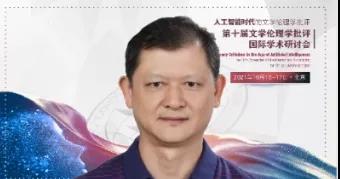
The two-day Convention offered 5 keynote speeches and 16 academic reports by different scholars and experts. The first keynote address was moderated by Prof. Yang Gexin from Zhejiang University and peer-reviewed by Prof. Shang Biwu from Shanghai Jiao Tong University.
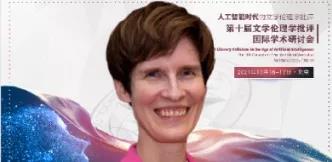
Prof. Karen Thornber from Harvard University spoke on “Literary Ethical Criticism and Climate and Gender Justice in the Age of Artificial Intelligence”. In her presentation, she discussed the role that literary criticism and literary scholars should play in an increasingly complex world of artificial intelligence, noting that while robotics and artificial intelligence are becoming more industrialized and diversified, the environmental issues caused by climate change continue unabated. She called attention to climate and gender issues, as environmental and gender justice remains out of reach for the vast majority of women and other marginalized groups in the world.
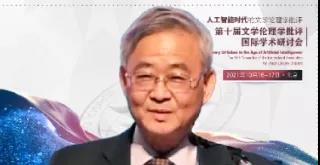
In his speech “The Problem of Cognitive Enhancement Technology: The Ethics of Artificial Intelligence and Posthumanism in the Age of Change”, Prof. Youngmin Kim from Dongguk University, Korea, shifted Martin Heidegger’s “Technical inquiry” to “cognitive inquiry”, highlighted the core concept of “Cognitive Enhancement Technology” (CET) on the nature of human existence and technology, and tried to address the question why highly advanced technology ignores the technical dimension inherent in human thinking. The speech provided a new vision for predicting the ethics of AI and post-humanism in the new era.
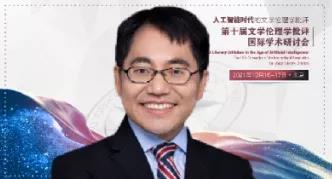
“Can machines replace humans?” Prof. Shang Biwu from Shanghai Jiao Tong University, a foreign academician of the European Academy of Sciences, analyzed this thought-provoking question by perusing the robots and ethical choices in Kazuo Ishiguro’s Klara and the Sun. He argued that Ishiguro had creatively rewritten the classic proposition of the Turing Test “Can machines think?” into “Can machines replace humans?” In his view, the question is what humans must face and solve in the era of artificial intelligence. And the answer to this question is not only a scientific choice, but also an ethical one.
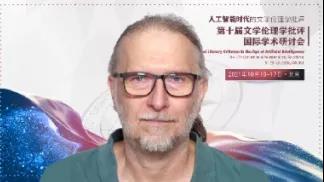
The second keynote address was moderated by Prof. Luo Liangong from Central China Normal University and peer-reviewed by Prof. Cheng Chaoxiang from Peking University. The keynote address by Prof. Péter Hajdu from the Hungarian Academy of Social Sciences focused on Hungarian modernism and classical tragedy as a way to explain the ethical dilemma of modernism. He analyzed two modernist plays, Laodamia by Mihaly Babits and Catullus byMilan Furst, suggesting that Babits modernized the ancient tragic form into pure poetry, while Furst adapted an ancient plot into a modernist bourgeois drama. He concluded that in both rewritings, the ethical narratives disappear into obscurity, reflecting the dilemma of modernist ethical writing.
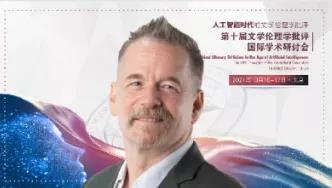
Prof. Stuart Christie from Hong Kong Baptist University touched upon the new ethical issues in the digital age. He noted that computational thinking (CT) had profoundly influenced education and disciplines around the world through artificial intelligence and algorithmic applications. However, its limitation was that computational thinking and machine learning lacked sensitivity and value dimensions, and thus cannot deal with ethical value issues. In this new digital era, he advocated a new model of education: reapplying human values to digital technology, rather than merely shaping and managing students through digital means, and calling on teachers, parents, and governments to take responsibilities for ethical education.
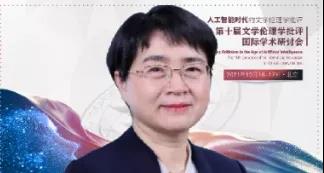
Prof. Chen Hongwei from University of Science and Technology Beijing explained the theoretical discourse system of literary ethics criticism constructed by Prof. Nie Zhenzhao in her speech “Theoretical Innovation of Literary Ethics Criticism”. She believed that on the basis of inheriting Chinese moral criticism tradition and Western ethical criticism, Prof. Nie has built a theoretical system with Chinese characteristics different from Western ethical criticism and creatively proposed a trilogy of civilization based on ethical choice, a textual view based on brain text and a literary view based on ethical teaching, which reinterpreted human civilization, filled in the gap of Western textual theory, addressed the controversy between ethics and aesthetics, and opened up a new field of literary studies with an interdisciplinary ethical perspective.
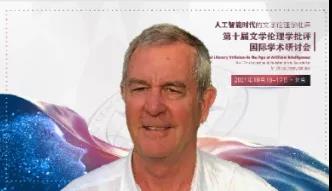
The third keynote address was moderated by Prof. Wang Lan of Shanghai International Studies University and reviewed by Prof. He Ning of Nanjing University. Paul Patton, Hongyi Chair of Philosophy at Wuhan University, regarded Kazuo Ishiguro’s new novel Klara and the Sun as a unique contribution to the literature of artificial intelligence. He argued that the protagonist Klara is an artificial human, and we can think about questions such as the nature of human life and its possible future forms from this character. He placed these issues in the broad context of literature and films, and deciphered how Ishiguro dealt with the ethical issues that technology has brought to human life.
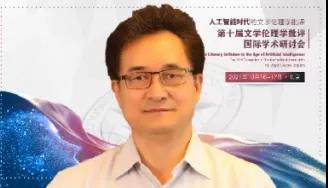
With the Book of the Dead, the earliest written literature of mankind, as an example, Prof. Wu Di from Zhejiang University discussed the presentation of the brain text in the generation of classics. He defined what brain text is, and analyzed the presentation of brain text in the Book of the Dead. He suggested that the concept of animism is based on the perception of the brain text, which embodies the earliest religious consciousness of human beings. The ethical teaching function of the Book of the Dead also fully illustrates that there is no classic without ethics, and the ethical choices, including the meaning of the brain text, play an extremely important role in the classic generation.
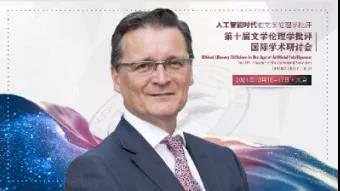
Prof. Seán Hand, Vice Chancellor of the University of Warwick and academician of the European Academy of Sciences, reviewed the convenience and challenges of artificial intelligence from the perspectives of compatibility, innovation, risk awareness and reductionism, and elaborated on the ethics of autoimmunity. He also explained how the ethical practice of autoimmunity deconstructed technological rationality in reshaping vulnerability, getting access to knowledge and freedom.
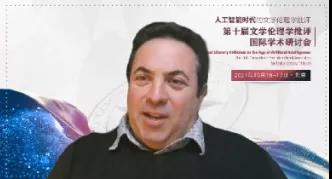
The fourth keynote address was moderated by Prof. Liang Xiaohui from University of Science and Technology Beijing and reviewed by Prof. Liu Yan from Shenzhen University. Professor Robert Eaglestone of Royal Holloway, University of London, conducted an ethical study with Kazuo Ishiguro as his subject. According to him, the core element of Ishiguro’s novel is ethical mediation. According to Ishiguro’s understanding, the historical events in the world that have greatly shaped the Western ethical paradigm can be called ethical mediators, such as atomic bomb, imperialism, and Holocaust. He further explored how Ishiguro’s idea of ethical mediation has been developed and presented, offering a unique way of thinking about contemporary ethical criticism.
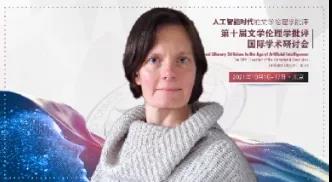
Prof. Helen Smith from York University, the UK, explored the relationship between early modern material intelligence and the ethics of thought. By examining early modern British writers and thinkers, she found that early moderns often saw thought and intelligence as a material construct: intelligence was built up, for example, by writing notes on paper, and turned into a substance that could be manipulated. By explicating this material intelligence, which is very different from contemporary understandings, Prof. Smith reflected on contemporary views of originality, plagiarism, and influence, and considered in depth what today’s AI ethics bring to the researchers on early modern humans.
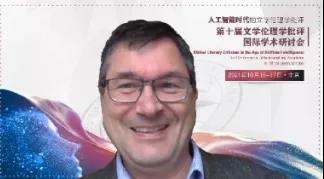
Prof. Galin Tihanov from Queen Mary, University of London, academican of the European Academy of Sciences, and academician of the British Academy, began his lecture with a discussion of Prof. Nie Zhenzhao’s critical theory of literary ethics, and went on to analyze the introspective ethics of the Covid-19 pandemic in the context of the current crisis.
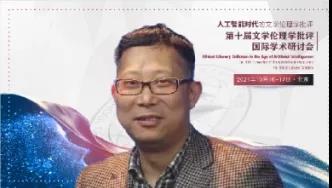
The fifth keynote speech was moderated by Prof. Tian Junwu from Beijing University of Aeronautics and Astronautics and peer-reviewed by Prof. Jin Bing from the University of International Business and Economics. Prof. Wang Songlin from Ningbo University, in his lecture “Neuroscience, Brain Text and the Ethical Orientation of the Thinking Style of Literary Texts”, conducted a comparative study of neurolinguistics, neuro-ethics and Prof. Nie Zhenzhao’s theory of brain text. He agreed with Professor Nie’s assertion that brain texts are the source of literature, that the fundamental attribute of brain texts (and literature) is ethical teaching. He said that brain text theory helps interpret the thinking style of literary texts and the ethical orientation embedded in the texts. In particular, he emphasized that the choice and organization of words and syntax in literary texts is a manifestation of the conscious or unconscious thinking style of the writer (narrator/character), exposing explicitly or implicitly the values of the speaker.
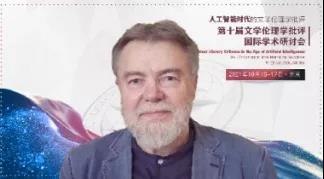
Focusing on cross-cultural dialogue and cultural ecology, Prof. Jüri Talvet from the University of Tartu, Estonia, emphasized the role of cultural and literary creativity. He emphasized that it is far from enough to apply ecology to natural and social sciences, but more attention should be paid to the autonomy of cultural ecology and its function in generating and inspiring ethical and moral values. Ecofeminism, the latest research trend in ecology, is based on the broader context of cultural ecology, and thus this cultural dimension is gaining more importance in literary studies.

Prof. Vladimir Biti, professor emeritus of the University of Vienna and member of the European Academy of Sciences, presented “Kafka’s Trial: A Court of Conscience?”, suggesting that The Trial came out right after the termination of Kafka’s engagement to his fiancée, Felice Bauer, and thus embodied the psychological catastrophe and reconstruction process through which the author experienced self-recrimination. He explored Kafka’s self-justification and repentance in an original way in the context of literary ethics.

On the evening of the 16th, the convention set up the Panel Session of Prof. Claude Rosen, chaired by Prof. Wang Songlin, and peer-reviewed by Prof. Nie Zhenzhao. The attendees held in-depth discussions about Professor Rosen’s academic research, his approach to scholarship, and his inspiration for their own research. On the morning of the 17th, nearly 500 leading scholars discussed and exchanged views in 24 panel discussions on the topics covering literary ethics criticism and re-reading of literary classics, theoretical research on literary ethics criticism, literary ethics criticism and artificial intelligence literature, post-human literature, anthropogene literature, science fiction, sci-tech literature, digital humanities in the age of artificial intelligence
At 16:00 on the 17th, the convention was successfully concluded in applause and the closing ceremony was chaired by Prof. Yin Jing from University of Science and Technology Beijing. Prof. Su Hui from Central China Normal University, secretary general of the Association and editor-in-chief of Foreign Literature Studies, joining Prof. Nie Zhenzhao and Prof. Zhang Xin, Dean of the Department of English Language and Culture of Guangdong University of Foreign Studies (GDUFS), addressed the closing ceremony.
Prof. Su first expressed her sincere thanks to all the scholars present at the convention and all the students and teachers who made the convention possible. Then, she reviewed and summarized the wonderful speeches of the scholars, and affirmed the significance of this convention as a bridge of exchange between China and the West for ethical research. Finally, on behalf of the the International Association for Literary Ethical Criticism, she announced the organizational restructuring and the election of Prof. Nie Zhenzhao as new President.
On behalf of the organizer of the next Convention, Prof. Zhang Xin congratulated the grand convening of the tenth International Convention of the International Association for Literary Ethical Criticism and thanked the Association for its trust and support to the Guangdong University of Foreign Studies as she felt it was a great honor to host the 11th International Convention of Literary Ethics Criticism. Then she welcomed all to GDUFS in 2022 for another academic feast.
After giving a brief summary of the Convention, Prof. Nie Zhenzhao, new President of International Association for Literary Ethical Criticism, expressed his appreciation to all the experts and scholars for working together to build an academic community for literary ethics criticism, which has upgraded literary ethics criticism to a higher level. He then thought highly of the Convention as a well-organized and structured academic conference of high level and quality, which set a benchmark for future academic webinars. Finally, he again expressed his heartfelt thanks to the organizers, sponsors and their teams, and his expectation for the next Convention.
The Convention ended up with Prof. Chen Hongwei’s invitation to GDUFS in 2022. Against the background of the era of AI and guided by ethical criticism, this Convention brought together scholars from all over the world and pooled wisdom of all parties to jointly outline the vision and blueprint for constructing literary ethical criticism in the era of AI. In the context of various scientific and technological revolutions bringing many ethical problems to the society, the scholars explored the ethical dilemma, discussed cutting-edge issues, and constructed an ethical system. The Convention made it clear that we should stick to ethical dimensions of science and technology and adhere to ethical values in the study of literature, and it pointed out the direction for the artificial intelligence in the era of literary ethical criticism research, and it would vigorously promote Chinese literary criticism theory and practice, as well as the literary ethical criticism and interdisciplinary research of international academic exchanges.
Institute of Interdisciplinary Studies of World Literature, ZJU
Translated by Cai Zhengwu
Proofread by Xu Xueying



